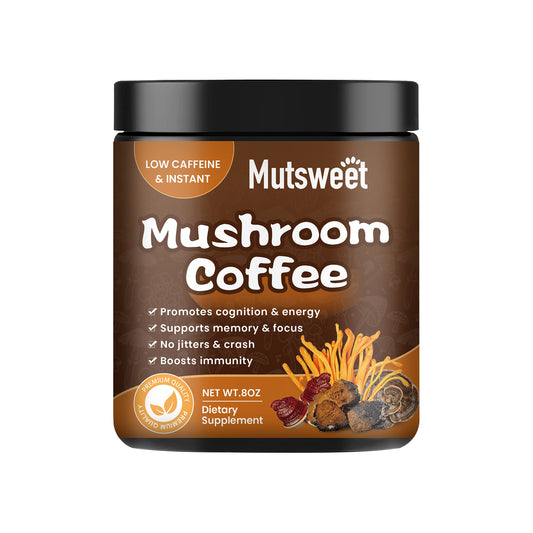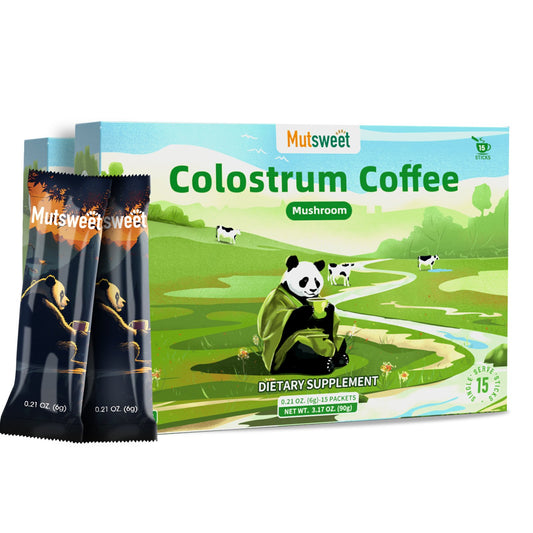Coffee beans are a beloved beverage ingredient, cherished for their rich flavor and energizing properties. However, while most of us enjoy coffee as a roasted beverage, there is a growing trend of eating raw coffee beans. With the rise of "clean eating" and the increasing popularity of health-focused coffee alternatives, raw coffee beans are making their way into snack aisles, smoothies, and even wellness supplements. But is eating raw coffee beans safe? In this article, we'll dive into the benefits and risks of consuming raw coffee beans, explore their nutritional value, and offer tips for safe consumption.

What Are Raw Coffee Beans?
Raw coffee beans are simply coffee beans that have not been roasted. The coffee we commonly drink starts as raw beans, which are processed, roasted, and ground to make the familiar cup of coffee. Raw beans, also known as "green coffee beans," are unroasted and maintain their natural state.
These beans have a grassy, earthy flavor, which is very different from the warm, rich taste of roasted coffee beans. They are typically greenish in color and have a firmer texture compared to their roasted counterparts. Raw coffee beans contain more of the compounds that are often altered or diminished through the roasting process, such as chlorogenic acids and other antioxidants.
While raw coffee beans have been used in traditional medicines and wellness products, they are often consumed in different ways compared to roasted beans, such as ground into powder or used as an ingredient in protein bars, smoothies, and snacks.
Nutritional Value of Raw Coffee Beans
Raw coffee beans are packed with nutrients, many of which are responsible for the health benefits that coffee lovers crave. Some of the key nutrients in raw coffee beans include:
- Caffeine: Like roasted coffee beans, raw coffee beans contain caffeine, the well-known stimulant that provides a boost of energy and improves mental focus. However, raw coffee beans contain more caffeine than roasted beans, as roasting decreases the bean's caffeine
- Antioxidants: One of the standout benefits of raw coffee beans is their high antioxidant Raw coffee beans contain chlorogenic acids, a powerful antioxidant with anti-inflammatory properties that can help protect cells from oxidative stress. These antioxidants are higher in raw beans compared to roasted beans, making raw coffee beans a potential source of extra protection for your body.
- Vitamins and Minerals: Raw coffee beans are rich in several vitamins and minerals, including B-vitamins (like niacin), potassium, magnesium, and manganese. These nutrients play vital roles in supporting energy production, muscle function, and bone health.
- Dietary Fiber: Raw coffee beans also contain fiber, which can help support digestive health and keep you feeling full for longer periods. Fiber is an essential part of a balanced diet and can assist in managing blood sugar levels and cholesterol.
Compared to roasted coffee beans, raw coffee beans retain more of these nutrients, especially chlorogenic acids, which are believed to help with weight management and other health benefits.
Benefits of Eating Raw Coffee Beans
Consuming raw coffee beans can offer several benefits, thanks to their rich nutrient profile and active compounds. Some of the key benefits include:
Rich in Antioxidants
Raw coffee beans are loaded with chlorogenic acids, which have strong antioxidant properties. Antioxidants protect the body from free radicals—unstable molecules that can cause damage to cells and lead to chronic diseases. By consuming raw coffee beans, you may benefit from enhanced protection against oxidative stress and inflammation. Chlorogenic acids are believed to support the body's natural detoxification processes and may help improve overall health.
Boosts Energy and Alertness
Raw coffee beans contain caffeine, the well-known stimulant that provides an energy boost and improves mental alertness. Eating raw coffee beans can offer a more immediate form of energy than drinking brewed coffee, as the caffeine is absorbed directly into the bloodstream. This can make raw coffee beans an excellent choice for those looking for an energy pick-me-up throughout the day.
Potential Health Benefits
Some studies suggest that raw coffee beans may help improve metabolism, support heart health, and aid in weight management. The chlorogenic acids in raw beans have been linked to the regulation of blood sugar levels and may play a role in managing conditions like diabetes. Additionally, caffeine in raw coffee beans has been associated with improved cardiovascular health, reducing the risk of heart disease when consumed in moderation.
Support for Weight Loss
Chlorogenic acids in raw coffee beans have been shown to have weight-loss benefits, particularly in reducing the absorption of sugar from the digestive system. This could potentially lead to weight management or reduced fat accumulation. While more research is needed, the compounds found in raw coffee beans are thought to support the body’s natural fat-burning processes.
Risks and Considerations of Eating Raw Coffee Beans
While raw coffee beans offer numerous benefits, there are also some risks to consider. Like any food, moderation and proper preparation are key when consuming raw coffee beans.
Caffeine Overload
One of the main concerns with eating raw coffee beans is the potential for excessive caffeine intake. Raw coffee beans contain more caffeine than roasted beans, so consuming them in large amounts can lead to overstimulation and side effects such as jitteriness, anxiety, or difficulty sleeping. It’s important to monitor your intake and be mindful of how your body responds to raw coffee beans.
Gastrointestinal Discomfort
Raw coffee beans can be tough on the stomach. Due to their hardness and high acidity, consuming raw coffee beans may cause gastrointestinal discomfort, including bloating, gas, or indigestion. To minimize discomfort, it’s recommended to eat small amounts of raw coffee beans at first and monitor your body's response.
Unpleasant Taste
Raw coffee beans are not known for their pleasant flavor. They have a grassy, bitter taste that many people find unappealing. To make raw coffee beans more palatable, they can be ground up and incorporated into smoothies, protein bars, or baked goods. You could also consider adding them to your daily coffee as an additional nutrient boost.
Potential Toxins
Though rare, raw coffee beans can carry contaminants like mold or toxins, especially if they have been improperly stored. Always source raw coffee beans from a reputable supplier and ensure they are stored in a dry, cool place. Consuming contaminated beans may lead to food poisoning or other health issues.
How to Eat Raw Coffee Beans Safely
If you're interested in incorporating raw coffee beans into your diet, here are some tips to help you do so safely:
- Start Slowly: If you're new to raw coffee beans, start by consuming small amounts to assess how your body reacts. Gradually increase your intake as you become accustomed to their effects.
- Grind or Blend: Because raw coffee beansare hard, grinding or blending them can make them easier to digest and incorporate into recipes. You can grind them into a fine powder and mix them into smoothies or energy bars for a nutrient boost.
- Pair with Other Foods: Raw coffee beansare quite bitter, so pairing them with other foods like milk, chocolate, or honey can help balance their flavor. You could also add raw coffee bean powder to baked goods, granola, or protein shakes.
- Consult a Health Professional: If you're unsure whether raw coffee beans are right for you—especially if you have health conditions like high blood pressure or caffeine sensitivity—it's a good idea to consult with a healthcare provider before adding them to your diet.
Who Should Avoid Eating Raw Coffee Beans?
While raw coffee beans can provide numerous health benefits, they may not be suitable for everyone. Those who should avoid raw coffee beans include:
- People with Caffeine Sensitivity: If you’re sensitive to caffeine, consuming raw coffee beans may cause adverse effects like jitteriness, rapid heart rate, or anxiety.
- Pregnant Women: Excessive caffeineintake during pregnancy has been linked to an increased risk of miscarriage and other complications. Pregnant women should limit their caffeine consumption, including raw coffee beans.
- People with Digestive Issues: Individuals with digestive problems, such as acid reflux or ulcers, may find that the acidity of raw coffee beansexacerbates their symptoms.
Conclusion
In conclusion, while raw coffee beans offer a rich source of antioxidants, caffeine, and other nutrients, they also come with certain risks and considerations. They can be a beneficial addition to a health-conscious diet, providing an energy boost and a range of potential health benefits. However, it's essential to consume them in moderation, consider your individual health needs, and prepare them properly for the best experience.
Whether you're a coffee connoisseur or someone looking to explore new health trends, raw coffee beans offer an interesting and nutritious option. But as with any food, always listen to your body and ensure that you're incorporating them into your diet safely.
References
- Green, Thomas. The Health Benefits of Raw Coffee Beans. Health Journal, vol. 32, no. 4, 2021, pp. 45-50.
- Johnson, Emily. "Caffeine Sensitivity and Its Effects on the Body." Coffee Health Magazine, 2022, www.coffeehealthcom/caffeine-sensitivity.
- Williams, Peter. "Chlorogenic Acids in Coffee: A Comprehensive Review." Nutrition Science Journal, vol. 21, no. 2, 2020, pp. 88-95.







